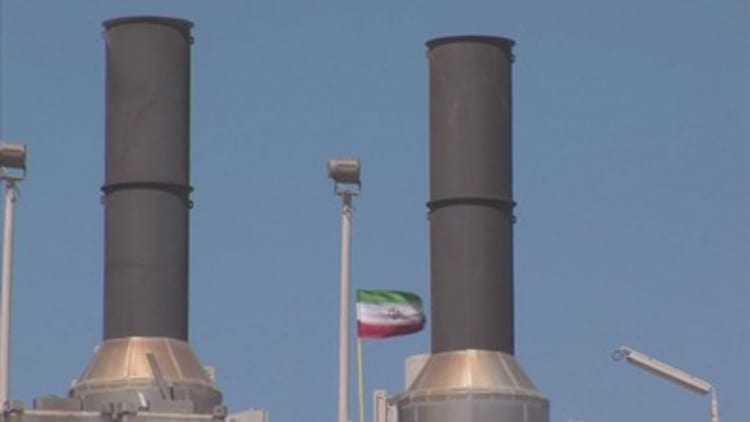Oil prices whipsawed Monday, turning negative after the International Energy Agency forecast potential shale oil growth and waning European refined product demand, which bodes poorly for global efforts to remove a glut.
In a session driven by headlines, oil earlier strengthened slightly after Iraq's oil minister said the Organization of the Petroleum Exporting Countries would likely need to extend its production cuts into the second half of 2017.
U.S. shale oil production may grow by 1.4 million barrels per day by 2022 with prices at about $60 per barrel, the IEA said in a report. More than 3 million bpd of capacity growth could be generated if prices rise to $80 a barrel, the agency said. At the same time, demand for European refined products is seen weakening.

U.S. West Texas Intermediate crude fell 13 cents a barrel $53.20 by 2:35 p.m. ET (1935 GMT). Brent crude up 15 cents a barrel to $56.05.
The market has been rangebound for more than 60 days, constrained by concerns that U.S. production growth may counter OPEC's agreement to reduce output during the first half of the year.
Iraq's oil minister Jabbar Al-Luaibi said the production cuts will likely need to be extended into the second half of 2017, according to a Bloomberg report. Iraq is ready to join in such an effort, according to Bloomberg.
Iraq agreed to lower its production by 210,000 barrels per day under the deal but OPEC's second-largest producer had originally sought to be exempt from any cuts, saying it needed the revenue to fight an Islamic State insurgency.

"I think that has stopped some of the selling pressure that we opened with," said Gene McGillian, head of market research at Tradition Energy.
Still, he cautioned that OPEC's cuts have not yet altered the overhang in oil inventories substantially.
"The idea that we can extend it would be supportive in the medium term," he said. Statements from Saudi Arabia, OPEC's largest member, would be needed to push the price substantially higher, he said.
Earlier in the session, oil had retreated as China lowered its growth target for the year to 6.5 percent, compared with 6.7 percent last year, and tightened regulatory controls in an effort to tackle pollution.
Investors are watching the moves carefully for signs they could dampen demand for oil.


